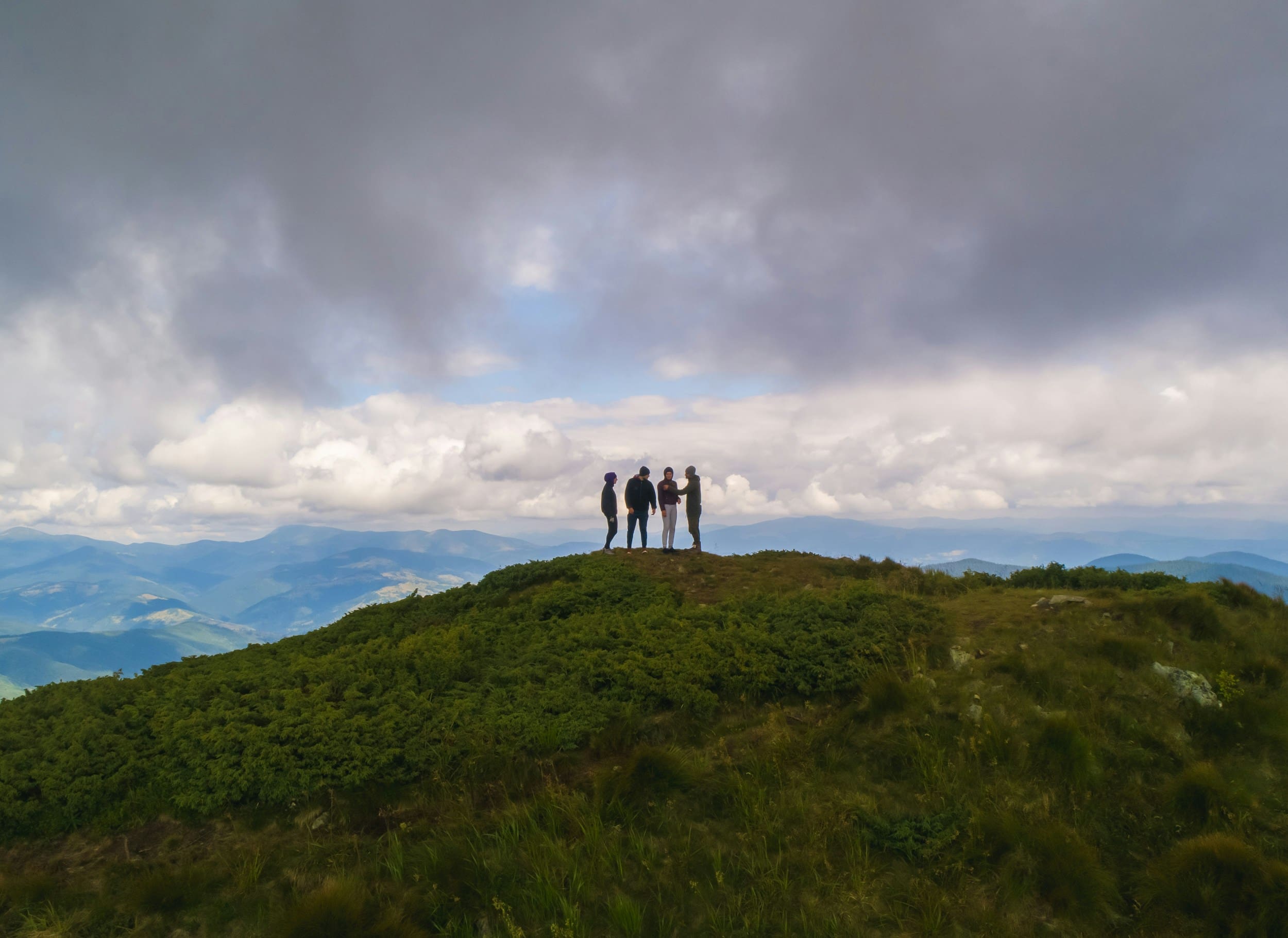In Episode 974 of How to Be Awesome at Your Job, Stella Grizont, an executive coach and happiness expert, takes us on a journey into the eight inner skills that create true career happiness. What makes this episode particularly special isn’t just the practical tips she shares but the deeply relatable story she tells—a story about hiking up a mountain that perfectly illustrates the profound role trust plays in our lives.
Imagine standing at the base of a steep incline, unsure of how you’ll make it to the top. Now imagine facing that same challenge, but this time, you’re surrounded by people you trust—friends, mentors, or colleagues who support and encourage you. Suddenly, the path doesn’t seem so daunting. This story is a reflection of how much the people around us and the trust we build in ourselves shape how we view and navigate life’s challenges and serves as a powerful reminder: no mountain is too steep when you have the right support system and the inner strength to tackle it.
It’s not about climbing; it’s about how we approach the climb, who we lean on, and how we prepare ourselves for the journey ahead. Whether you’re navigating workplace challenges or personal goals, this story reminds us that trust—in both ourselves and others—is one of the most essential tools we can carry.
The Mountain and the Mind: A Simple Experiment with Big Implications
Imagine you’re hiking up a mountain. You stop to look ahead at the steep incline and estimate how deep the path is before you. Now, imagine doing this twice: once when you’re hiking alone or with strangers, and again when trusted friends accompany you.
The results of this experiment, as shared by Stella Grizont, reveal something fascinating: those hiking with trusted companions consistently perceive the incline as less daunting. It’s the same mountain, the same path, and the same challenge—but our perception changes based on the people around us.
✿ Thank you for reading!
Subscribe to be our bestie, no spam—just good vibes once a month.
This is a powerful insight. It shows how trust and connection influence not just our emotional state but also how we physically experience the world. The presence of someone we trust acts as a buffer, reducing the mental and emotional weight of a challenge.
The Science of Trust and Perception
This mountain experiment is supported by research in social psychology and neuroscience. Studies have shown that trust and social connection can significantly impact how we process stress and uncertainty.
For instance, research from the Journal of Experimental Social Psychology demonstrates that people feel less physical and emotional strain when facing challenges with trusted companions. This is because trust activates the release of oxytocin, sometimes called the “bonding hormone,” which reduces stress and promotes feelings of safety and calm (Heinrichs, von Dawans, & Domes, 2009).
When we trust the people around us, our brains interpret challenges as more manageable. Conversely, when we’re alone or feel unsupported, our stress response heightens, making obstacles appear larger and more intimidating than they actually are.
Stella Grizont’s Insights: Inner Skills and Outer Connections
Stella Grizont explains that trust isn’t just about the relationships we have with others—it’s also about the trust we cultivate within ourselves. This dual trust system allows us to face life’s metaphorical mountains with resilience and grace.
Her eight inner skills for career happiness include self-awareness, self-compassion, and setting boundaries. These skills are about building a strong internal foundation so that when external challenges arise, you have the mental and emotional tools to navigate them.
Grizont also emphasizes the importance of fostering meaningful connections in the workplace. Trusting colleagues, mentors, or even one supportive friend can transform how we approach our careers.
Applying the Lessons: Building Trust and Inner Strength
1. Surround Yourself with Trusted Allies
Having trusted people in your corner—whether at work or in your personal life—can make the hardest tasks feel achievable. Build relationships with colleagues who inspire and support you, and don’t hesitate to lean on them when you need guidance or encouragement.
- Take Action: Make an effort to connect with colleagues through regular check-ins or shared projects. These moments of collaboration build trust over time.
2. Cultivate Self-Trust
Your inner dialogue matters. Developing confidence in your abilities and instincts is key to navigating challenges. Start by acknowledging your strengths and celebrating small wins.
- Take Action: Keep a journal of your accomplishments, no matter how small. Reflecting on what you’ve achieved reinforces self-belief.
3. Reframe Challenges as Opportunities
When you face a steep incline—whether it’s a demanding project or a difficult conversation—reframe it as a chance to grow. Trusting in the process and your ability to handle the outcome can make all the difference.
- Take Action: Before tackling a big challenge, pause and ask yourself, “What can I learn from this?”
4. Create Psychological Safety at Work
A supportive workplace culture amplifies trust and reduces stress. Advocating for open communication, empathy, and inclusivity can transform how teams navigate obstacles.
- Take Action: If you’re a leader, model vulnerability by sharing your own challenges. This builds trust and encourages others to do the same.
What This Means for Women in the Workplace
For working women, the lessons from this episode are particularly resonant. Navigating careers often comes with unique challenges, from balancing professional and personal responsibilities to advocating for ourselves in male-dominated spaces.
Building trust—both within ourselves and with others—becomes a superpower. When we have a support system, we can face challenges with resilience, negotiate with confidence, and embrace opportunities without fear.
Stella Grizont’s mountain story reminds us of a simple truth: life’s challenges are rarely as steep when we don’t face them alone. Trust—both in ourselves and in the people around us—can transform how we perceive and tackle difficulties. As we approach the mountains in our careers and personal lives, let’s remember to build connections, trust our instincts, and focus on the inner skills that make us stronger. Whether you’re hiking a literal mountain or climbing the corporate ladder, the right support and mindset can make all the difference.
References
Heinrichs, M., von Dawans, B., & Domes, G. (2009). Oxytocin, trust, and the social brain. Nature Reviews Neuroscience.
Baumeister, R. F., & Leary, M. R. (1995). The need to belong: Desire for interpersonal attachments as a fundamental human motivation. Psychological Bulletin.
Grizont, S. (2025). How to Be Awesome at Your Job: Episode 974. Awesome at Your Job Podcast.
✱ If you liked this article, please share it with a friend who could use inspiration.
If you have a topic in mind or a story to share anonymously or with your name, email us at [email protected]









